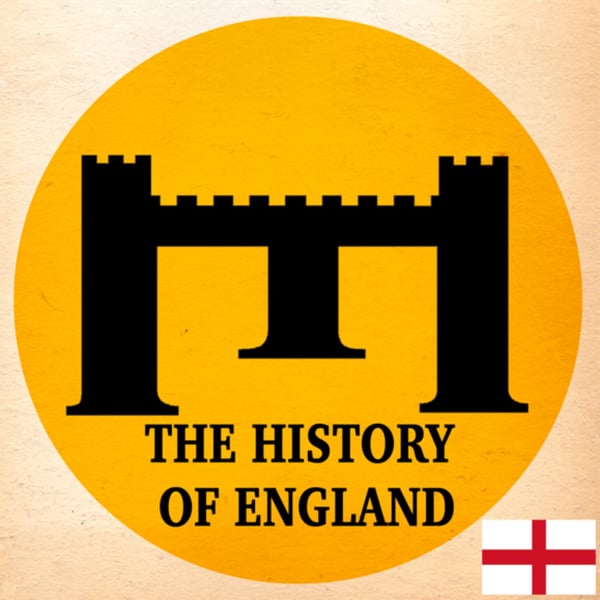367 New England
The History of England
David Crowther
4.8 • 5.9K Ratings
🗓️ 5 March 2023
⏱️ 45 minutes
🧾️ Download transcript
Summary
Hosted on Acast. See acast.com/privacy for more information.
Transcript
Click on a timestamp to play from that location
| 0:00.0 | Hello everyone and welcome to the History of England episode 367 New England. |
| 0:30.1 | Okay so here we are again at the final installment of my quartet of episodes on the English in the |
| 0:35.7 | Americas and this time it's New England's 10 look at walk hopefully with a bit on the most |
| 0:41.9 | glorious character and a bit of Dutch stuff to boot. I might start if you will forgive me with |
| 0:49.3 | an indigenous man called Tisquanton. Often known to history I believe as Quanto in this I confess to |
| 0:55.6 | be following the trajectory of Charles Mann's book 1491 just so you've got a reference. |
| 1:01.8 | It is a useful place to start because we can maybe begin with the country into which the brave and |
| 1:07.0 | hope for English colonists were to enter. Tisquanton belonged to the Pattoxet band of the Wampanoag |
| 1:14.4 | people on the eastern seaboard. It's just north of Martha's Vignade that you know darling across the bay |
| 1:20.3 | from Cape Cod. It's where the rising sun hits the North American continent first for a time |
| 1:26.6 | and so the area was also known as Daunland and Tisquanton's fellows as the people of the first light |
| 1:33.0 | which is a lovely name to have. You might think of a suitable name for your own neighborhood |
| 1:37.9 | on the same basis. North, North, North, Coast, Wells might be people of the wind stripped flesh |
| 1:43.9 | just for example. New England and the Northeast was well populated at this time with |
| 1:50.1 | maybe as many a hundred thousand people. But the world Tisquanton was born into was politically not |
| 1:56.0 | similar to Virginia or the lands to the North and West because there was no Confederacy formed there |
| 2:01.9 | and in fact it is possible that early contacts with Europeans had actually accentuated the |
| 2:07.4 | rivalries between indigenous peoples. Rivalry to control the trade with the mainly Dutch and |
| 2:14.0 | French traders especially in metal goods. They were exchanged for thers. The Algonquin speaking |
| 2:21.2 | peoples along the coast, Massachusetts in the north of New England, the Wampanoag and the Peacot |
| 2:26.5 | in the south seemed to have become the middlemen in trade between the Europeans and rivals such as |
| 2:32.8 | Narragansett and Mohiggans further west. The English also had plenty of trading contact with the |
... |
Please login to see the full transcript.
Disclaimer: The podcast and artwork embedded on this page are from David Crowther, and are the property of its owner and not affiliated with or endorsed by Tapesearch.
Generated transcripts are the property of David Crowther and are distributed freely under the Fair Use doctrine. Transcripts generated by Tapesearch are not guaranteed to be accurate.
Copyright © Tapesearch 2025.

